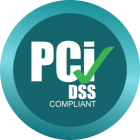All businesses at one time or another reach a point where it’s no longer possible to cut costs without fundamentally changing how they operate. When this happens, companies may outsource to reduce costs.
In this article, we’ll explore how outsourcing may reduce costs and whether or not it’s the right solution for your business.
Outsourcing through the smart use of software
Choosing the correct supportive programs, such as Fyle, is the first step in your outsourcing journey. Expense management software like Fyle makes it possible for management to keep a tight rein on costs. Additionally, the automated features of these programs reduce the pressure on your team members.
These AI-based systems can also process thousands of tedious transactions in seconds. Thus they are more productive, consistent, and accurate than a team member. This saves the business time and prevents expensive mistakes.
Benefits of using an Expense Management Software
- No transcription errors: Executives may load their claims by scanning them into the system. The system then creates a claim request, ensuring that there are no duplicate claims or transcription errors.
- No room for creative accounting: Manually capturing and verifying expense claims makes it easy for a less than honest person to game the system. With AI drawing the information and verifying it, there’s no need for human intervention.
- Simple authorization process: The software can compile all expense claims into a simple report for payment authorization.
- Reduced data capturing: The automation of expense capturing has a further advantage. The software can integrate with your accounting system. When you load and authorize an invoice, the system automatically passes the correct entries on your accounting system.
- Provides extensive data reports: Managing travel and expense policies are much simpler when you have accurate data. A good software program allows you to drill down into reports and sort them by specific expense categories.
- Improve consultant satisfaction: Capturing expenses can become a very tedious administrative task. Consultants will feel more satisfied with their work without such boring tasks.
Outsourcing customer support
82% of clients leave a business because of poor service. Clients are increasingly demanding that companies provide an outstanding service experience. Clients no longer expect companies just to meet their needs; they demand that firms exceed their expectations. Take call centres as an example. They may adopt the use of software such as an IVR system to help them provide consistently excellent customer service.
To add to the complications, you’re not only competing with your direct competition; but the best service your client has ever experienced. Additionally, if your client chooses contact channels through other providers, your company may stand to lose.
Managing several contact channels and ensuring consistent service across all of them is difficult at times. It entails hiring a full-time support team, and this often proves expensive for businesses. Outsourcing call centers for customer support may be a cost-effective solution to this challenge.
In addition to the monetary compensation that full-time consultants earn, businesses also have to account for benefits such as:
- Medical insurance
- Travel and expense policies
- Training costs
- The costs of renting and maintaining work spaces
- Equipment costs, including maintenance and upgrades
- Software licenses
- Call center occupancy rates
- Data gathering
- Quality control
Overall, managing an in-house service team can prove challenging and costly. Teams must be large enough to provide quality service but not sit around without work to do. Balancing the two can prove difficult, especially if call volumes fluctuate regularly.
The benefits of outsourcing
Should your business consider outsourcing this function? It may be a viable option as it allows you to focus on your core competencies. While handing over this function reduces your control over your customer service team, the benefits could prove worthwhile:
- Lower costs: The BPO provider can share the costs of maintaining their team and equipment over several clients. They handle the travel and expense policies on your behalf.
- Choice of shared or dedicated agents; Clients may opt to have a dedicated team that only deals with their customers or reduce their costs by using shared consultants.
- Greater flexibility: Businesses may minimize their costs by opting for telephonic or email support only. They may also often tailor their plans for optimal support during peak periods or promotions.
- Access to service professionals: Client relationship is so important today that it’s crucial to ensure that customers receive outstanding support. A service professional has the experience and training to deal with various types of clients efficiently.
- Quality monitoring: An experienced support supervisor is equipped with the skills to monitor call quality properly. Third-party providers also perform regular audits to maintain their service levels.
- State-of-the-art technology: BPO providers are more likely to upgrade their equipment on a regular basis.
- 24/7 support: The modern customer expects round-the-clock support.. The expense of running this service in-house may be prohibitive.
- Multi-lingual support: Many call center companies engage consultants that are adept at speaking more than one language.
- Management expertise: Understanding how to effectively manage shifts, travel and expense policies, and consultants takes specialist skills. Call center companies have the supervisory capacity to handle these tasks with ease.
By partnering with service professionals, you ensure that your clients get the best possible support. You also save on staffing costs and reduce the workload for your team members.
Outsourcing accounting
Most businesses probably already allow a seasoned tax professional to audit their books and handle their tax filings. Companies may rein in expenses in this regard by ensuring that they capture as much data as possible in-house.
Accounting software makes this task a lot simpler, especially when AI is built into it. The software can download bank statements and allocate deposits, send clickable invoices to clients to enable them to pay on the spot and produce a range of useful reports.
The Benefits of Using Accounting Software
- Reduces expenses: Accounting software costs a great deal less than hiring an accountant. By capturing your data, you can reduce the amount of work the accountant must perform.
- Customizable: The software allows companies to set rules regarding categorizing entries in line with travel and expense policies. By selecting the appropriate category up-front, businesses ensure that all future entries are consistently assigned.
- Simple data entry: The system makes data capture simple. The clerk doesn’t even need to know which accounting entries to pass to make the system balance. The software will pass the correct entries automatically.
- Greater accuracy: Modern accounting software can draw information from several sources, including bank accounts and the sales system. This reduces the chance of transcription errors.
- May make it simple for clients to pay: Most modern software allow companies to embed a link to a payment gateway with invoices. By clicking on the link, clients can easily pay their dues.
- Automatic reconciliation of accounts: Whether clients use the payment gateway or deposit their payments separately, the system will automatically reconcile it. As long as the client uses the correct reference, it’s simple to do.
- Immediate updates: Automating payment reconciliations ensures that client accounts are always up to date. The clients may access an accurate balance at any stage during the month. This also makes the business look more professional.
- A range of reports: Accounting software provide access to several valuable reports. Companies can sort the information as they like to enable them to make sound business decisions. They can also use this information to modify or update travel and expense policies.
- Less room for fraud: The system will pick up duplicate payments and other inaccuracies that might point toward fraud or embezzlement.
- Provides centralized access for all departments: Separating the sales and accounting departments increases the chances of potentially embarrassing miscommunications. By providing centralized access, each department can check the exact position of client accounts.
- Simpler for tax compliance: Keeping up to date with the latest tax laws can be challenging. The software developers must do so as a matter of course. They’ll provide automatic updates to their programs to better ensure compliance.
- Simplifies payroll: Human resources can simply input the rate and allow the system to work out all the deductions. It can automatically separate taxes and insurances. The system may also allocate reimbursement in terms of travel and expense policies.
- Streamlines the end-of-year process: With the company’s bookkeeping system entirely up to date, there is no mad rush at the end of the year. It’s simple for the company to provide the CPA with the information to audit and create financial statements.
For businesses to accurately navigate through an economic downturn, they must have a handle on their accounting. The software makes this task simpler. In case automation is not for you at the moment, consider outsourcing to an accounting firm.
Final notes
With the changing business landscapes, companies need to amend their travel and expense policies to meet the need of the hour. Employee costs are among the highest of business operational costs, making streamlining of staffing needs crucial.
With smart outsourcing and the correct supportive software, firms can cut costs while building capacity. Additionally, companies may gain access to the professional skills and support they need to run efficiently.
By enlisting the help of third-party providers, firms can concentrate on building their core business while improving their flexibility. Choosing the correct outsourcing options allows companies to adjust to the changing business environment.
We hope this article helped you understand whether outsourcing is a good fit for your business!










